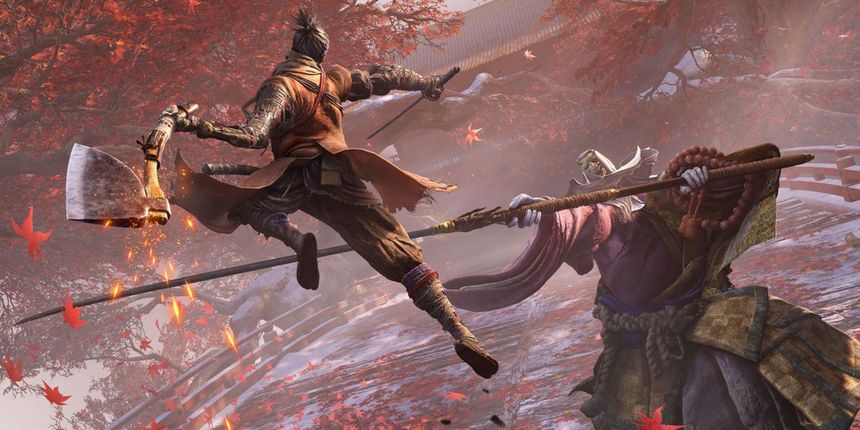Video games have become an integral part of modern entertainment, captivating millions of players around the world. From immersive open-world adventures to competitive esports titles, computer games have evolved into a diverse medium that appeals to a wide range of audiences. This article explores some of the most popular computer games of all time, examining their gameplay mechanics, cultural impact, and reasons for their enduring popularity.
1. Minecraft
Overview:
- Developer: Mojang Studios
- Release Date: May 17, 2009
- Platforms: PC, PlayStation, Xbox, Nintendo Switch, Mobile
- Genre: Sandbox, Survival
Gameplay Mechanics:
“Minecraft” is a sandbox game that allows players to explore a procedurally generated 3D world made up of blocks. Players can mine resources, craft tools, and build structures to create their virtual world. The game features two primary modes: Survival Mode, where players must gather resources to survive against environmental hazards and creatures, and Creative Mode, which provides unlimited resources for building and exploration without threats.
Cultural Impact:
“Minecraft” has become a cultural phenomenon, with a massive fanbase that spans all ages. Its open-ended gameplay encourages creativity and collaboration, making it popular in educational settings for teaching subjects like math, history, and coding. The game’s simplicity and endless possibilities have inspired a community of modders and content creators who continue to expand its potential.
Reasons for Popularity:
- Creativity and Freedom: Players have the freedom to build and explore however they wish, encouraging creativity and imagination.
- Community Engagement: A thriving community of modders, content creators, and players contribute to the game’s ever-evolving landscape.
- Educational Value: Its use in educational environments has increased its appeal among teachers and students.
2. League of Legends
Overview:
- Developer: Riot Games
- Release Date: October 27, 2009
- Platforms: PC, Mac
- Genre: Multiplayer Online Battle Arena (MOBA)
Gameplay Mechanics:
“League of Legends” is a MOBA where players control a “champion” with unique abilities and compete in teams to destroy the opposing team’s Nexus. The game is set on a map called Summoner’s Rift, which features lanes, turrets, and neutral objectives. Players must strategize, coordinate with teammates, and adapt to dynamic situations to secure victory.
Cultural Impact:
“League of Legends” has significantly impacted the esports industry, becoming one of the most-watched and played competitive games globally. Its professional leagues and tournaments attract millions of viewers, with the annual League of Legends World Championship being a major esports event. The game’s influence extends beyond gaming, inspiring music, merchandise, and an animated series.
Reasons for Popularity:
- Strategic Depth: The game offers strategic complexity and depth, appealing to competitive players.
- Regular Updates: Riot Games frequently updates the game with new champions, skins, and events, keeping it fresh and engaging.
- Esports Ecosystem: The thriving esports scene has contributed to its popularity and longevity.
3. Fortnite
Overview:
- Developer: Epic Games
- Release Date: July 25, 2017
- Platforms: PC, PlayStation, Xbox, Nintendo Switch, Mobile
- Genre: Battle Royale, Sandbox
Gameplay Mechanics:
“Fortnite” is a battle royale game where 100 players compete to be the last person or team standing on an island. Players must scavenge for weapons, resources, and building materials to outsmart opponents and survive the shrinking safe zone. The game combines shooting mechanics with building structures, adding a unique twist to the battle royale formula.
Cultural Impact:
“Fortnite” has become a cultural icon, influencing fashion, music, and even social interactions. Its crossover events with popular franchises, virtual concerts, and collaborations with celebrities have made it more than just a game. “Fortnite” has also popularized the battle royale genre, inspiring numerous other titles in the gaming industry.
Reasons for Popularity:
- Building Mechanics: The ability to build structures adds a strategic layer to the gameplay, setting it apart from other battle royale games.
- Regular Events: Frequent updates, events, and collaborations keep the game fresh and exciting for players.
- Cultural Phenomenon: Its cultural impact and widespread appeal have solidified its place in gaming history.
4. World of Warcraft
Overview:
- Developer: Blizzard Entertainment
- Release Date: November 23, 2004
- Platforms: PC, Mac
- Genre: Massively Multiplayer Online Role-Playing Game (MMORPG)
Gameplay Mechanics:
“World of Warcraft” (WoW) is an MMORPG that immerses players in the fantasy world of Azeroth. Players create characters, embark on quests, explore dungeons, and engage in player-versus-player (PvP) battles. The game features a vast open world with diverse landscapes, rich lore, and a complex system of classes and abilities.
Cultural Impact:
“World of Warcraft” is one of the most influential MMORPGs in history, shaping the genre and setting a standard for online gaming. It has a dedicated player base and has fostered a strong sense of community among its players. The game’s expansions and updates have kept it relevant for nearly two decades, and its impact on pop culture is undeniable.
Reasons for Popularity:
- Rich Lore and World: The game’s immersive world and storytelling captivate players and keep them invested.
- Social Experience: WoW’s community and cooperative gameplay foster social interactions and friendships.
- Endless Content: Regular expansions and updates provide new content and experiences for players to enjoy.
5. The Sims Series
Overview:
- Developer: Maxis, Electronic Arts
- Release Date: February 4, 2000 (The Sims 1)
- Platforms: PC, Mac, PlayStation, Xbox, Mobile
- Genre: Life Simulation
Gameplay Mechanics:
“The Sims” is a life simulation game series that allows players to create and control virtual people, known as Sims. Players manage their Sims’ lives, including their careers, relationships, and daily activities. The game offers a sandbox experience, allowing players to build and customize homes, explore various careers, and create unique stories.
Cultural Impact:
“The Sims” series has left a lasting impact on the gaming industry and popular culture. It has become one of the best-selling video game franchises, appealing to casual and hardcore gamers. Its emphasis on creativity, storytelling, and social interactions has influenced various aspects of gaming and simulation design.
Reasons for Popularity:
- Creative Freedom: Players can create and control their virtual worlds, fostering creativity and imagination.
- Relatable Gameplay: The life simulation aspect resonates with players, offering a unique escape and storytelling platform.
- Community and Mods: A strong community of modders and fans contributes to the game’s longevity and variety.
6. Counter-Strike: Global Offensive
Overview:
- Developer: Valve, Hidden Path Entertainment
- Release Date: August 21, 2012
- Platforms: PC, Mac, PlayStation, Xbox
- Genre: First-Person Shooter (FPS)
Gameplay Mechanics:
“Counter-Strike: Global Offensive” (CS) is a tactical FPS game that pits two teams, Terrorists and Counter-Terrorists, against each other in objective-based game modes. Players must use teamwork, strategy, and precise shooting skills to complete objectives or eliminate the opposing team. The game features various weapons, maps, and competitive matchmaking.
Cultural Impact:
CShas become a cornerstone of the esports scene, with a dedicated fanbase and professional tournaments that draw massive viewership. Its competitive nature and skill-based gameplay have made it a favorite among FPS enthusiasts. The game’s influence extends beyond gaming, impacting streaming platforms, content creation, and esports culture.
Reasons for Popularity:
- Skill-Based Gameplay: The game’s focus on skill, strategy, and teamwork appeals to competitive players.
- Esports Success: CS’s esports ecosystem has contributed to its popularity and longevity.
- Community and Mods: The modding community and active player base keep the game vibrant and engaging.





Hi, this is a comment.
To get started with moderating, editing, and deleting comments, please visit the Comments screen in the dashboard.
Commenter avatars come from Gravatar.